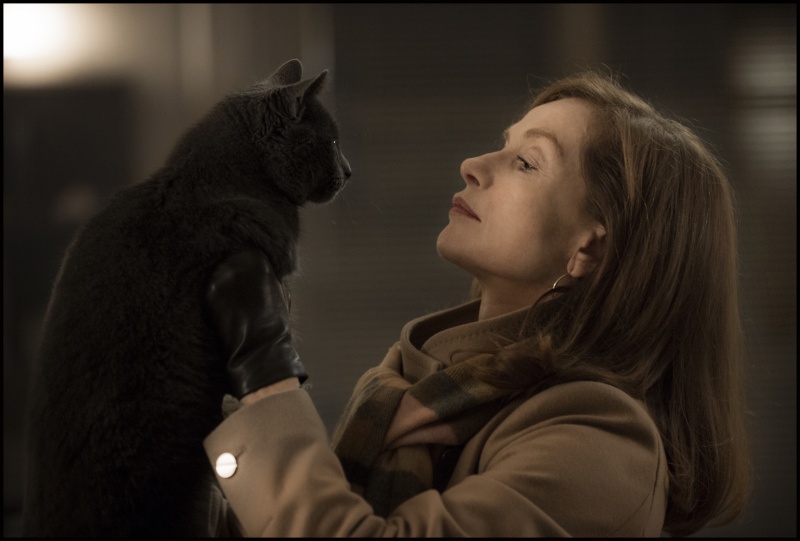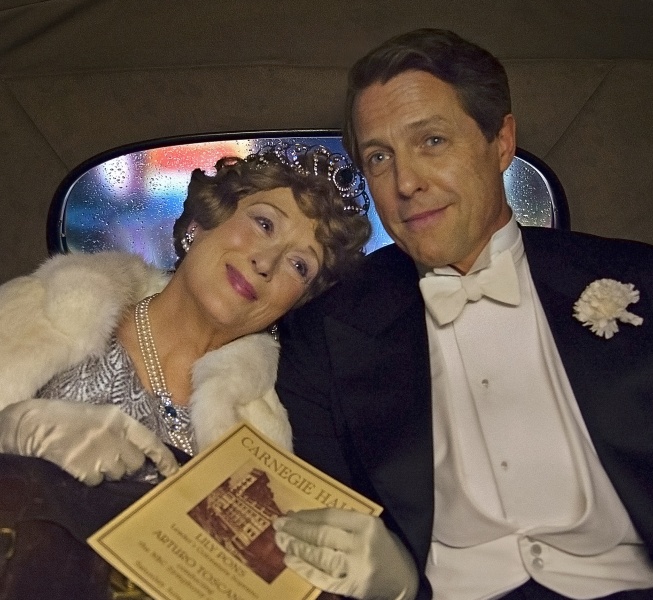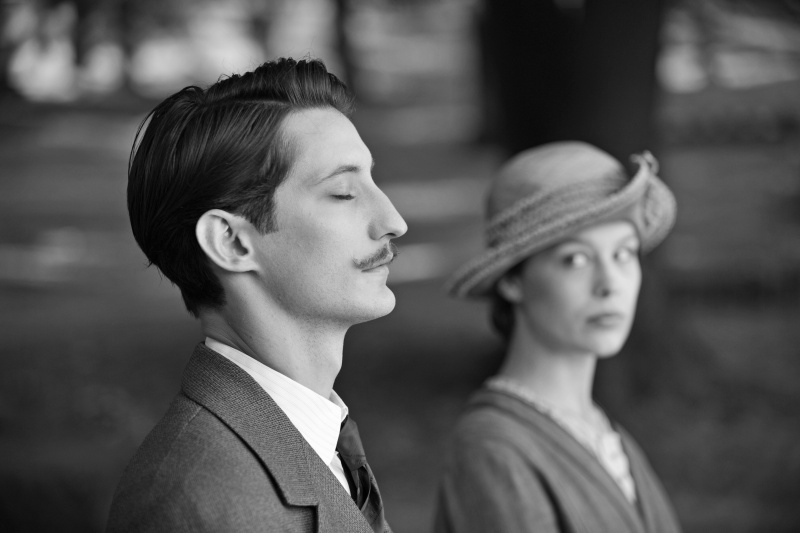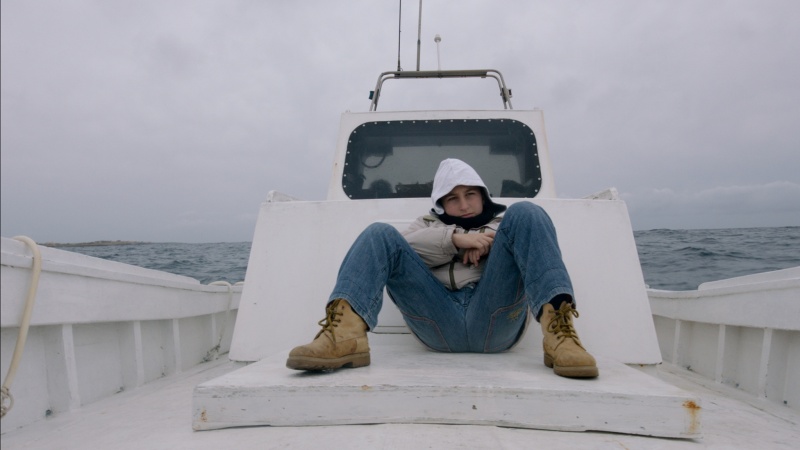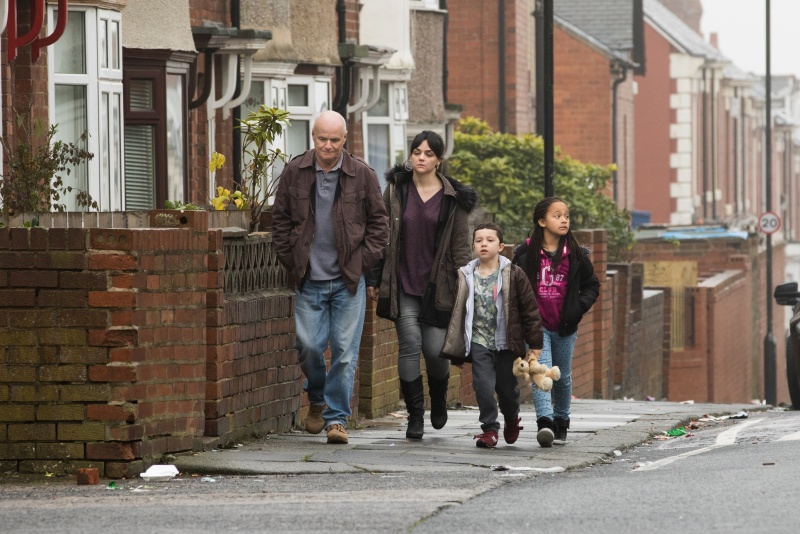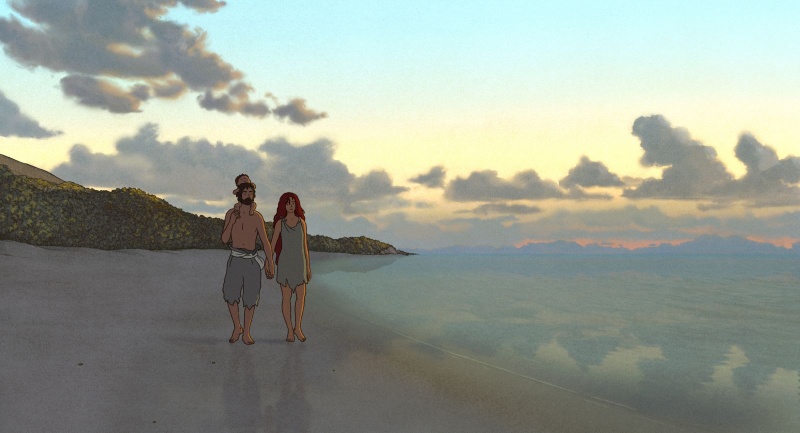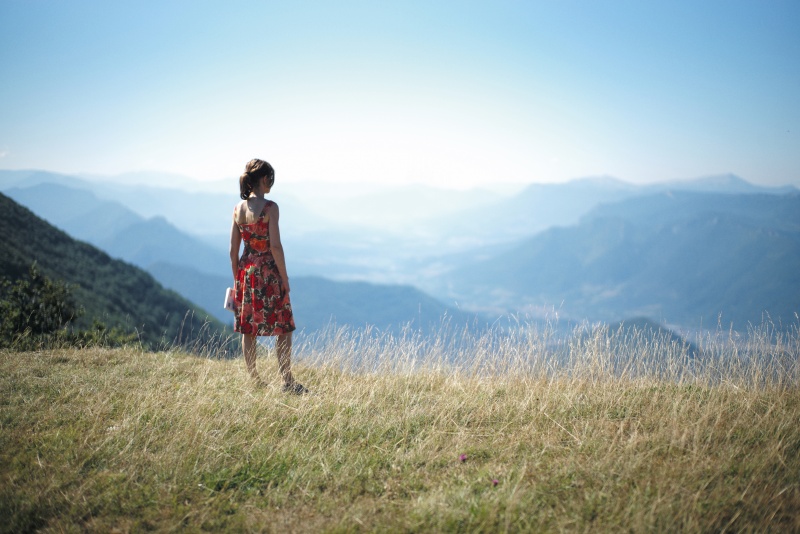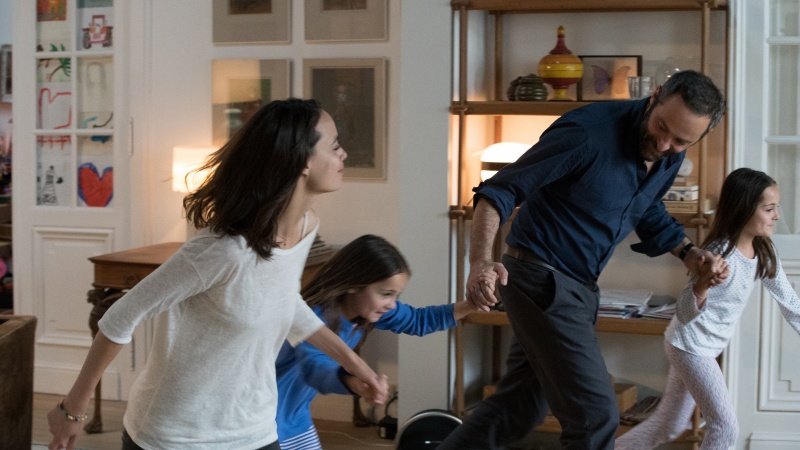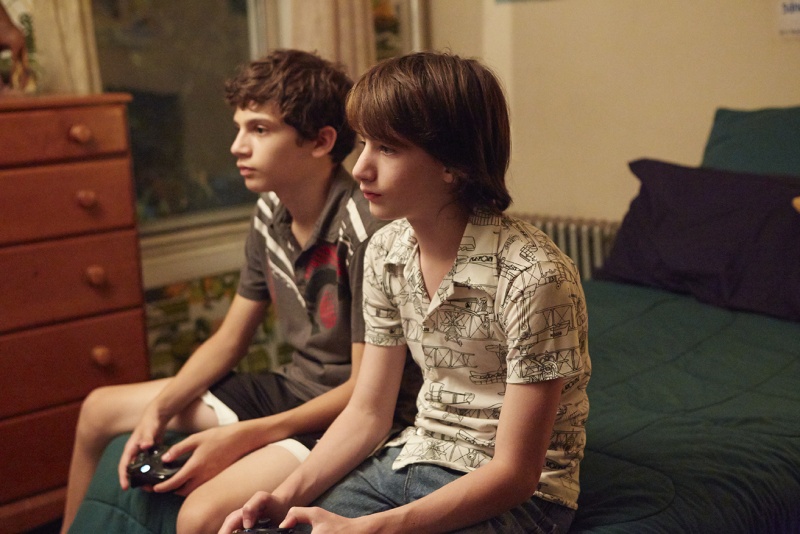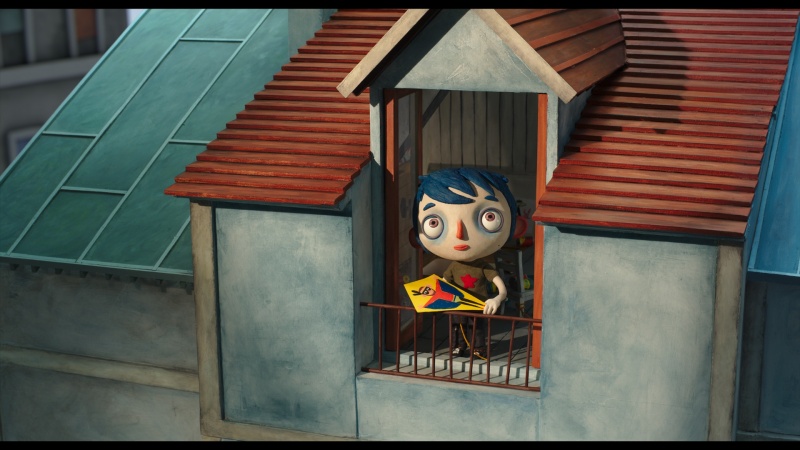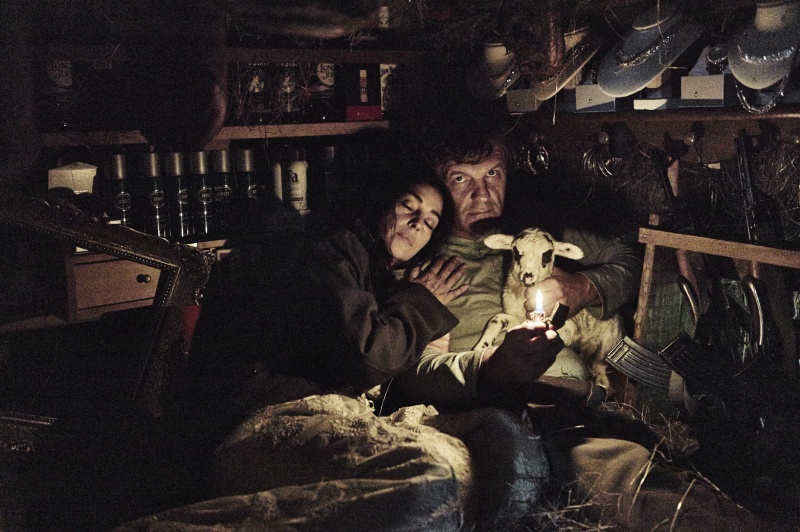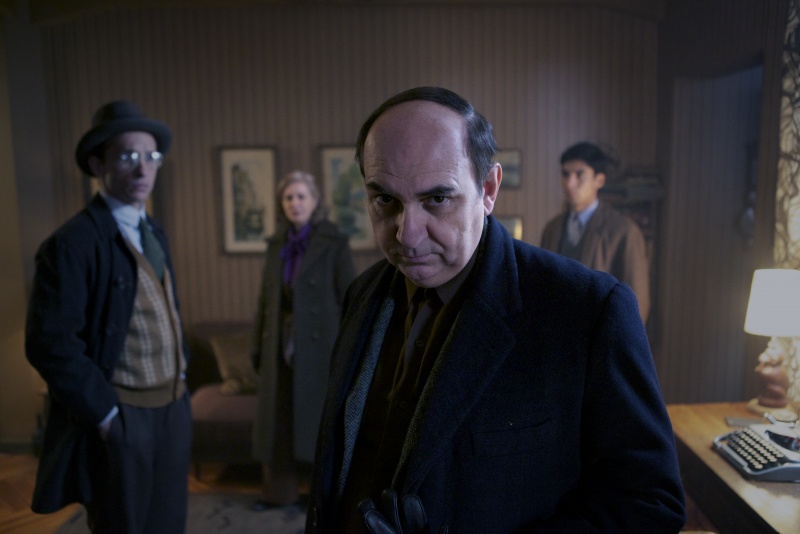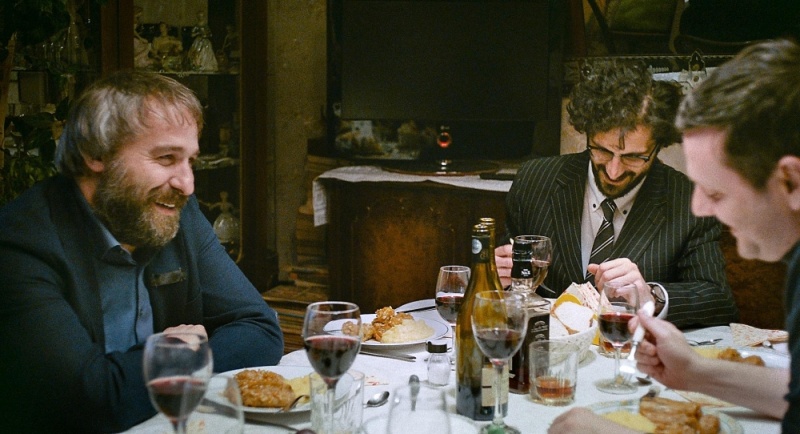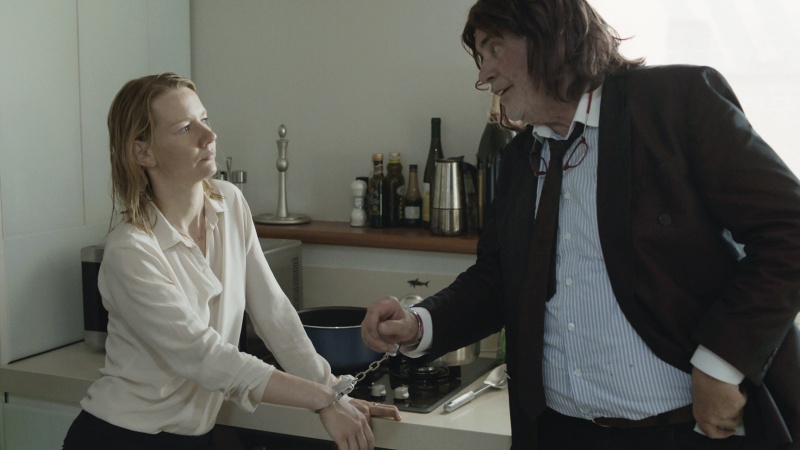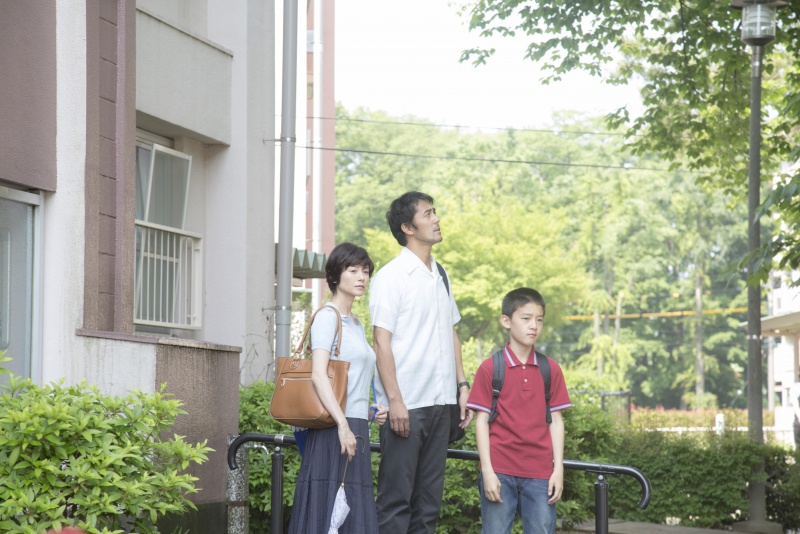The discriminations and inequalities of the contemporary world, the family and the different forms of love and hate can be found in the storyline of some of the year’s most important films, the “recommendations” of the best fests on the planet. Maren Ade, Claude Barras, Michael Dudok de Wit, Stephen Frears, Mia Hansen-Løve, Hirokazu Koreeda, Emir Kusturica, Joachim Lafosse, Pablo Larraín, Ken Loach, François Ozon, Cristi Puiu, Gianfranco Rosi, Ira Sachs and Paul Verhoeven will present their latest works in the Pearls section.
The Berlin and Cannes Festivals saw awards go to films that portray and condemn today’s world. For more than a year the filmmaker Gianfranco Rosi moved onto Lampedusa, the Italian island turned point of mass immigrant disembarkation. For the Jury chair at the recent Berlinale, Meryl Streep, Fuocommare / Fire at Sea “demands its place in front of our eyes and compels our engagement and action”.
The Cannes Palme d’Or, I, Daniel Blake, Audience Award winner last weekend at the Locarno Festival, is another wake-up call and yet another illustration of the social realism practiced by Ken Loach (Nuneaton, UK, 1936) throughout his career. Written by his chief screenwriter, Paul Laverty, he depicts the ups and downs of two victims of a bureaucratic, hostile system.
Another veteran and multi-award winning British filmmaker, Stephen Frears (Leicester, 1941) portrays the person known as “world’s worst opera singer”. Florence Foster Jenkins, embodied by Donostia Award-winner Meryl Streep, follows the life of an eccentric New York heiress who succeeds in becoming an opera singer despite her lack of talent thanks to the complicity of her “husband” and manager, played by Hugh Grant, and her pianist, Simon Helberg (The Big Bang Theory).
Hirokazu Koreeda (Tokyo, 1962) is one of the most highly appreciated contemporary filmmakers in San Sebastian: he has competed four times in the Official Selection with Wandafuru raifu / After Life (1998), Hana yori mo naho / Hana (2006), Aruitemo, aruitemo / Still Walking (2008) and Kiseki / I Wish (Milagro, 2011), recipient of the Best Screenplay Award and has won the Audience Award twice for Soshite chichi ni Naru / Like Father, Like Son (2013) - Jury Grand Prix at Cannes - and Umimachi Diary / Our Little Sister (2015). This year will see his third time in competition for the award with Umi yorimo mada fukaku / After the Storm. In the film, premiered at Cannes, a tornado reunites a man with his family, one of the Japanese filmmaker’s favourite subjects; if a few years ago he explored the matter from the son’s point of view, he now takes the stance of the father to tackle the issue.
The family, the father’s death and the place we occupy in the world are also at the centre of Sieranevada / Sierra Nevada, by Cristi Puiu (Bucharest, 1967), screened as part of the official selection at the last Cannes Festival.
In Toni Erdmann her father’s appearance causes all sorts of commotion in the life of a woman working for a German company with headquarters in Bucharest. The third feature film by Maren Ade (Karlsruhe, Germany, 1976) won the FIPRESCI Prize in Cannes.
Joachim Lafosse (Uccle, Belgium, 1975), winner last year of the Silver Shell for Best Director with Les chevaliers blancs / The White Knights, recently released in Spanish cinemas, looks at what happens when love comes to an end in L’économie du couple / After Love. Presented in the Directors’ Fortnight at Cannes, here we have a couple who separate after a relationship of fifteen years but continue to live under the same roof.
Claude Barras (Sierre, Switzerland, 1973) is the only debutant in this edition of Pearls. Having made five shorts, his first feature film, the animation Ma vie de courgette / My Life as a Courgette was selected at Cannes and awarded at Annecy; it was also chosen by Switzerland as its Academy Award candidate. This is not the only animated film in the section. La tortue rouge / The Red Turtle, directed by Michael Dudok de Wit, bagged the Un Certain Regard Special Prize at Cannes. The Dutch moviemaker, winner of an Academy Award for the short film Father and Daughter, turns to a tropical island to set a tale about all of the stages in a human being’s life. The film is a co-production by Japan’s Ghibli studio and several European production companies.
Emir Kusturica (Sarajevo, 1954) can boast a career studded with the highest accolades of the film world: Golden Lion for his directorial debut, Sjećaš li se Doli Bel? / Do You Remember Dolly Bell? (1981) and Best Director at Venice for Crna macka, beli macor / Black Cat, White Cat (1998), two Palmes d’Or - Otac na službenom putu / When Father Was Away on Business (1985) and Underground (1995) - plus Best Actor - Dom za vešanje / Time of the Gypsies (1989) - in Cannes, and Silver Bear at the Berlinale for Arizona Dream (1993). Na mliječnom putu / On the Milky Road, to be premiered at Venice and starring Monica Bellucci alongside Kusturica himself, brings us the first fictional inroads by the Serbian filmmaker since 2007.
Little Men, by Ira Sachs (Memphis, 1965), premiered in Berlin’s Generation section, tells the story of the friendship between two thirteen year old boys one summer in Brooklyn. Sachs won the Grand Jury Prize at Sundance for Forty Shades of Blue and the Teddy Bear for Best Feature Film in Berlin for Keep the Lights On.
San Sebastian has followed the entire career of Pablo Larraín (Santiago de Chile, 1976) since he won Films in Progress 13 in 2008 with Tony Manero. Larraín’s take on Neruda premiered at the Directors’ Fortnight in Cannes, as did his first work and No, also selected for Pearls. The Chilean moviemaker competed in Venice with Post Mortem and carried off the Grand Jury Prize at the Berlinale last year with El club. Gael García Bernal, who perfectly personifies detective Óscar Peluchonneau as he doggedly pursues the poet, will receive the first Jaeger-LeCoultre Cine Latino Award at the gala screening of the film in the Victoria Eugenia Theatre.
Like Larraín, Mia Hansen-Løve (Paris, 1981) debuted in the Cannes Directors’ Fortnight with her first feature, Tout est pardonné (All is Forgiven) recognised with the Louis Delluc Award. Her second work, Le père de mes enfants (Father of My Children) was presented in Un Certain Regard and Eden competed in the Festival’s Official Selection in 2014. Her latest film, L’avenir / Things to come, premiered at Berlin and landed the Silver Bear for Best Director.
L’avenir / Things to Come shares the same actress as Elle: a splendid Isabelle Huppert (Donostia Award in 2003). The film by Paul Verhoeven (Amsterdam, 1938), author of titles such as Robocop, Basic Instinct and Showgirls, takes a rape as his starting point to produce a controversial, off-the-wall comedy.
The personal and familiar universe of François Ozon (Paris, 1967) takes us in Frantz to a small German city after the 1st World War. Ozon, a regular at leading festivals, Golden Shell for Dans la maison (In the House) in 2012, is set for the Venice premiere of his latest film, starring Pierre Niney (The Odyssey) and Paula Beer (The Dark Valley).
Michèle seems indestructible. Head of a successful video game company, she brings the same ruthless attitude to her love life as to business. Being attacked in her home by an unknown assailant changes Michèle’s life forever. When she resolutely tracks the man down, they are both drawn into a curious and thrilling game, a game that may, at any moment, spiral out of control.
Set in 1940s New York, Florence Foster Jenkins is the true story of the legendary New York heiress and socialite who obsessively pursued her dream of becoming a great singer. The voice she heard in her head was beautiful, but to everyone else it was hilariously awful. Her 'husband' and manager, St. Clair Bayfield, an aristocratic English actor, was determined to protect his beloved Florence from the truth. But when Florence decided to give a public concert at Carnegie Hall, St. Clair knew he faced his greatest challenge.
In a small German city after the 1st World War, Anna goes to the cemetery every day to mourn the loss of her boyfriend Frantz, who died while fighting in France. One day she meets Adrien, a young French boy who has come to put flowers on Frantz’s grave and whose presence in a country that has recently lost the war will inflame contradicting passions.
The island of Lampedusa is Italy’s southernmost point. Since 1990 it has become a place of mass disembarkation by illegal immigrants coming from Africa. In little more than 20 years, more than 20,000 people have drowned while making the crossing to what is for many a route of entry to Europe, and one which should allow them to escape from war and hunger. Samuele lives on the island. He’s ten years old, goes to school and likes playing with his sling and hunting. He prefers games related to land, even if everyone around him talks about the sea and about the men, women and children who try to make their way over it to get there.
English joiner Daniel Blake (59) has heart problems, and for the first time ever he needs help from the State. Despite doctor’s orders not to work, the social services oblige him to find a job if he doesn’t want to be sanctioned. At one of his Job Centre appointments, Daniel meets Katie, a single mum with two children who’s only chance to escape a one-roomed homeless hostel in London has been to accept a flat in a city she doesn’t know some 300 miles away. Finding themselves in no-man’s land, caught on the barbed wire of welfare bureaucracy in modern day Britain, Daniel and Katie will try to help one another.
A man marooned on a desert island tries desperately to escape, until one day he encounters a strange turtle that will change his life.
Nathalie teaches Philosophy at a Parisian high school. She loves her work and enjoys thinking about things. Married and with two children, she splits her time between her family, former students and her mother, an enormously possessive woman. One day her husband announces that he’s leaving her for another woman. Nathalie will have to put all of her theories on freedom into practice and reinvent her life.
After fifteen years together, Marie and Boris decide to separate. Marie is the owner of the house they live in with their two daughters, but Boris has completely renovated it. He can’t afford to get himself another place to stay, meaning that they must continue to live under the same roof. When all’s said and done, neither of the two are willing to give in.
Summer in Brooklyn. Jake’s parents have recently moved into his grandfather’s house. Tony’s mum has been running the downstairs shop for years. The two boys, Jake and Tony, both 13, find that they have heaps of interests in common.
Courgette is an intriguing nickname for a 9-year-old boy. Although his unique story is surprisingly universal. After his mother's sudden death, Courgette is befriended by a kind police officer Raymond, who accompanies Courgette to his new foster home filled with other orphans his age. At first Courgette struggles to find his place in this, at times, strange and hostile environment. Yet with Raymond's help and his new found friends, Courgette eventually learns to trust, finds true love and at last a new family of his own.
Spring in wartime. Each day a milkman crosses the frontline on a donkey, dodging bullets to bring his precious wares to the soldiers. Blessed with good fortune on his mission, loved by a beautiful villager, a peaceful future seems to await him... until the arrival of a mysterious Italian woman turns his life upside down. Thus begins a story of passionate, forbidden love, which will plunge them both into a series of fantastic and dangerous adventures. They have been joined by fate, and nothing and no one seems able to stop them...
It’s 1948 and the Cold War arrives in Chile. In the Congress, Senator Pablo Neruda accuses the government of betraying the Communist Party and is stripped of his parliamentary immunity by President González Videla. The prefect of Investigative Police Óscar Peluchonneau is instructed to arrest the poet.
Three days after the Charlie Hebdo attack and forty days after his father’s death, Lary – aged 40, a doctor – goes to spend a Saturday with his family, gathered in memory of the dead man. But the event will not go as planned. Obliged to face up to his fears and to his past and forced to reconsider the position he holds within his family, Lary will have to tell his truth.
Ines works for a high-powered German corporation with its headquarters in Bucharest. Her life is perfectly organised until her father Winfried suddenly turns up and asks her an unexpected question: “Are you happy?” Incapable of answering him, her existence is thrown into upheaval by the presence of the father she feels a little ashamed of, but who will gradually help her to make new sense of her life thanks to an imaginary character: the entertaining Toni Erdmann. The film won the FIPRESCI Prize at the Cannes Festival 2016.
Ryota dwells on his past glory as a prize-winning author. After his divorce, he wastes all the money he makes on betting and can’t pay his son’s child support. An unexpected tornado will change the course of things.

